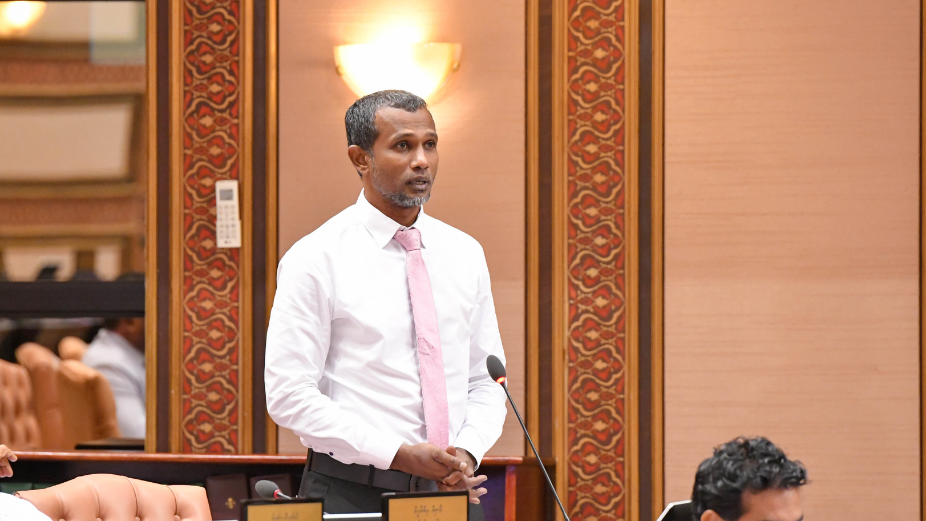
Two government-proposed bills seeking to increase tourism-related taxes have been forwarded to a sub-committee of Parliament’s Public Accounts Committee and Economic Affairs Committee for further review. The decision to refer the bills to a sub-committee follows differing opinions among members during an initial review by the Whole House Committee.
The bills propose amendments to the Tourism Goods and Services Act and the Airport Taxes and Fees Act, which are expected to significantly impact the tourism industry and the country’s revenue. Both bills were forwarded to the sub-committee with the unanimous support of the 62 MPs in attendance.
Proposed Changes to the Tourism Goods and Services Act
The bill to amend the Tourism Goods and Services Act seeks to increase the Tourism Goods and Services Tax (TGST) from 16% to 17%, with the change slated to come into effect from June 2025. While the bill was generally supported, concerns were raised by several members of the ruling People’s National Congress (PNC) regarding the timing of the increase.
Ahmed Thariq (PNC), representing Mahibadhoo constituency, proposed delaying the tax hike, arguing that June 2025 was too soon and would pose challenges for businesses that sign annual contracts. Thariq highlighted that an increase in taxes in the middle of a contract period could lead to financial difficulties for resorts and tourism operators. He suggested postponing the tax hike to October 31, 2025, aligning the increase with the natural end of many yearly contracts.
Thariq also drew attention to the challenges faced during the previous TGST increase from 12% to 16%, implemented in January 2023. He noted that the Maldives Inland Revenue Authority (MIRA) collected less revenue in January 2023 compared to January 2022, despite the higher tax rate. This, he explained, was due to businesses declaring their taxes in December, which led to a drop in January collections.
Proposed Changes to Airport Taxes and Fees
The second bill, aimed at amending the Airport Taxes and Fees Act, proposes an increase in various departure taxes. Foreign economy class passengers would see the Airport Departure Tax and the Airport Development Fee rise from USD 30 to USD 50, while business class passengers, both local and foreign, would face an increase from USD 90 to USD 120. The largest increase is set for first class passengers, whose fees would rise from USD 90 to USD 240. Those departing on private jets would see the steepest increase, with fees climbing from USD 120 to USD 480. These changes are scheduled to take effect on December 1, 2024.
Debate on Effectiveness and Broader Implications
During the committee discussions, Thulusdhoo MP Ibrahim Naseem called for a study to determine whether raising TGST or focusing on regularising unregulated tourism businesses would be more effective. He suggested that engaging in a broader debate about these approaches could be beneficial, and several MPs voiced support for this suggestion. However, no vote was taken on this matter, and the bill was passed on to the sub-committee for further review.
Economic Impact of the Proposed Tax Hikes
The Finance Ministry estimates that the proposed tax increases across the tourism sector could boost government revenue by nearly MVR 3 billion. The Maldives’ economy is heavily reliant on tourism, with TGST and airport fees contributing significantly to the national budget. However, concerns remain over the potential impact on businesses, particularly in light of the recent increases in tourism taxes.
Tourism operators have voiced concerns that frequent tax hikes could affect their pricing strategies and ability to remain competitive. With the Maldives being a popular destination for high-spending tourists, maintaining a balance between necessary fiscal measures and industry sustainability is crucial.
As the bills move to the sub-committee for further analysis, lawmakers will have the opportunity to review the proposed timelines and potential consequences in greater detail. Any changes will be introduced during this review phase before being brought back to Parliament for final approval.
If passed, the amendments to the Tourism Goods and Services Act and the Airport Taxes and Fees Act will mark a significant shift in the taxation landscape for the Maldives’ tourism sector. These measures, aimed at increasing government revenue, must be balanced against the operational needs of the tourism industry to ensure sustainable growth.
The final outcome will depend on the sub-committee’s review, with businesses and policymakers watching closely to see how these changes will affect the Maldives’ key economic driver.











